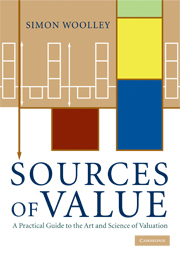Book contents
- Frontmatter
- Contents
- List of figures
- Preface
- Acknowledgements
- Section I The five financial building blocks
- 1 Building block 1: Economic value
- 2 Building block 2: Financial markets
- 3 Building block 3: Understanding accounts
- 4 Building block 4: Planning and control
- 5 Building block 5: Risk
- Section II The three pillars of financial analysis
- Section III Three views of deeper and broader skills
- Appendices Individual work assignments: Suggested answers
- Glossary
- Bibliography
- Index
3 - Building block 3: Understanding accounts
Published online by Cambridge University Press: 22 January 2010
- Frontmatter
- Contents
- List of figures
- Preface
- Acknowledgements
- Section I The five financial building blocks
- 1 Building block 1: Economic value
- 2 Building block 2: Financial markets
- 3 Building block 3: Understanding accounts
- 4 Building block 4: Planning and control
- 5 Building block 5: Risk
- Section II The three pillars of financial analysis
- Section III Three views of deeper and broader skills
- Appendices Individual work assignments: Suggested answers
- Glossary
- Bibliography
- Index
Summary
Summary
Accounting and economic value are often considered as separate subjects. They will typically be taught in different classes on an MBA course. This foundation section, however, covers both topics. The book will not teach you to become an accountant. The aim is to build just a minimum understanding of accounts such that individuals will be able to do three key things:
Join in with conversations on accounting topics such as those which surround publication of accounting results.
Understand the link between accounting results and the economic value model.
Use a simplified set of financial statements that I call the abbreviated financial summary to produce accounting based cash flow models.
The building block is in four parts. In the first part we introduce some basic ideas concerning accounts and in particular introduce the three main accounting statements. These are the:
income statement;
balance sheet; and
cash flow statement.
The main focus will be on the accounts for wholly owned operations although the complexities that tend to follow when activities are not all wholly owned will also be explained. In part 2 we will learn how to restructure the basic accounting data into a more useful format which is better aligned with the concept of economic value. I call this format the abbreviated financial summary (AFS) and we will use this to work with the numbers and learn how the various accounting statements are ‘wired’ together. Part 3 will concentrate on two main case studies in order to demonstrate how the technique can be applied in practice.
Information
- Type
- Chapter
- Information
- Sources of ValueA Practical Guide to the Art and Science of Valuation, pp. 62 - 98Publisher: Cambridge University PressPrint publication year: 2009
